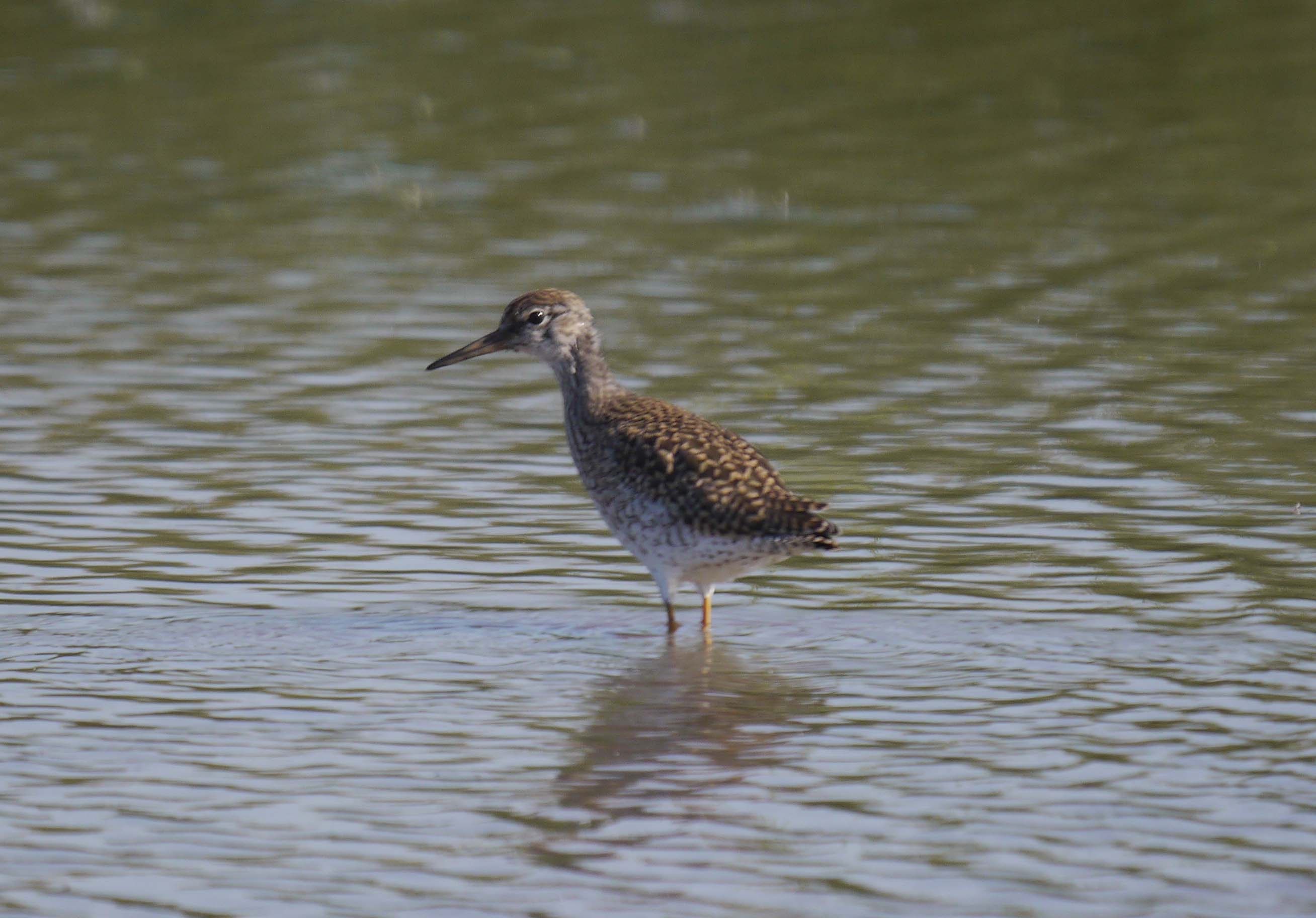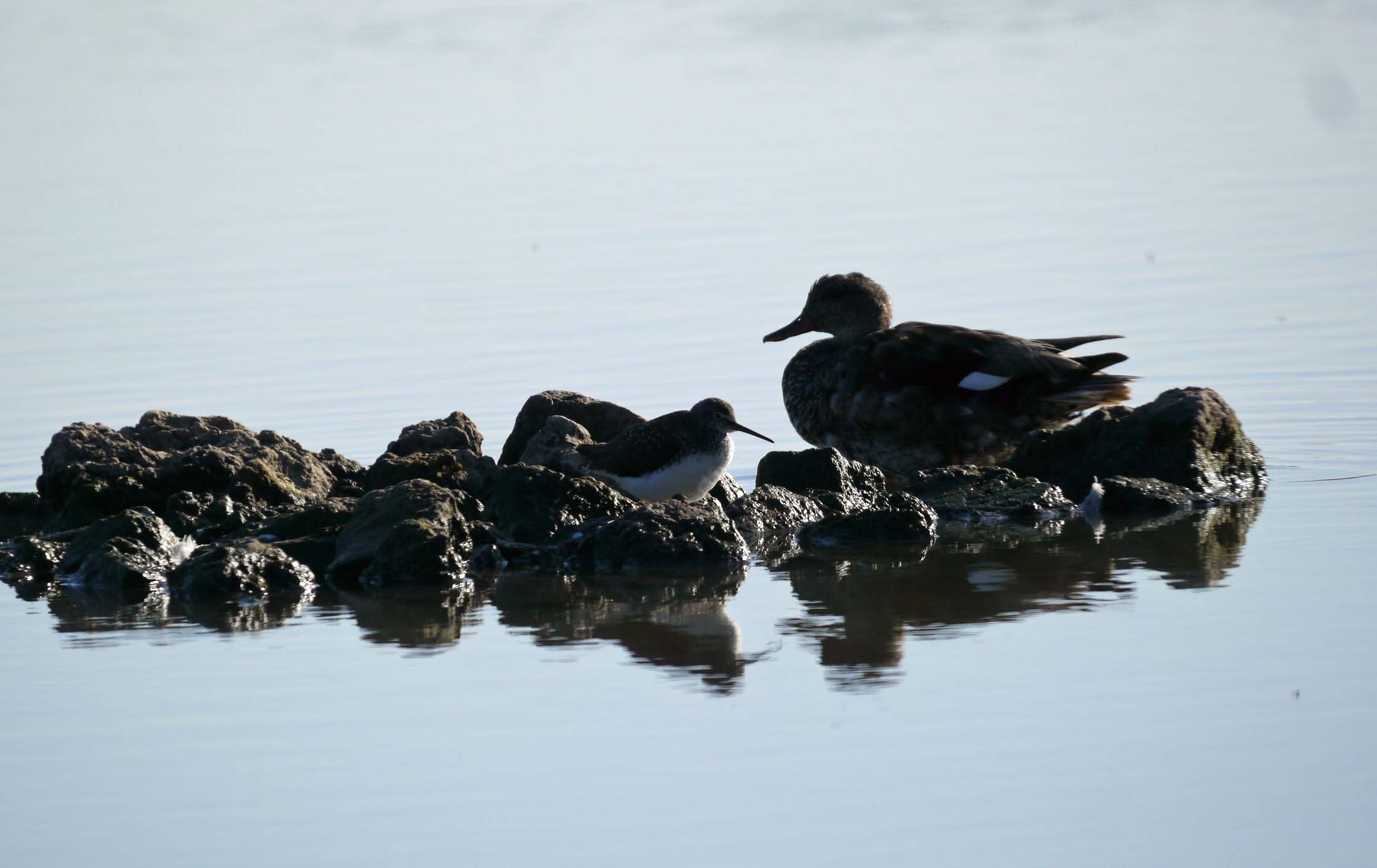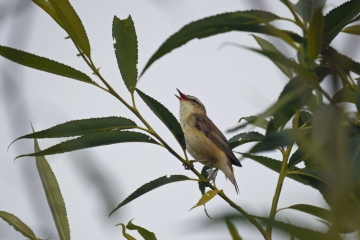Showers and a few more migrants appearing
The brief deluges have have an impact on the reserve.
The heavy rain over the weekend has positives and negatives, whilst we need the water to keep the site ticking over as a wetland it has also been a huge problem for the the breeding Little-ringed Plovers, it appears that the two nests on South Lake have been swamped by the extremely heavy downpours. Sadly this is very likely to be the last breeding attempt by these birds this year. A number of new migrant birds have also arrived, read on for the latest news.
South Lake
Three male Ruff (pictured) feeding on the North causeway (another bird on the Rushy so four on site), 6 Little-ringed Plover (two migrant juveniles), 8 Oystercatcher, 8 Redshank, 18 Lapwing, 5 Green and one Common Sandpiper, 8 Pochard, Little Grebes, 12 Tufted Duck, 62 Coot, 14 Shoveler, 3 out of season Wigeon among the many birds present.
Tack Piece
Eleven Lapwing, the Black-winged Stilt, juvenile Redshank, 6 Shoveler and up to 13 Green and a single Common Sandpiper
Rushy Hide
Sightings this morning include- three Spotted Redshank among 33 Redshank, a Common Sandpiper, a few Green Sandpiper, male Ruff, 23 Teal, 7 Black-tailed Godwit early morning increased to 120+ over the high tide period, the male Black-winged Stilt has arrived here after starting and ending the day on the Tack Piece.
Top New Piece
16 Dunlin today but no sign of yesterday's breeding plumage Curlew Sandpiper or the Greenshank, 59 Black-tailed Godwit, 9 Mallard, broods of 4, 7 and 10 Gadwall, 14 Teal, Little-ringed Plover 101 Lapwing. A Great Egret was also present along the fleet.
Bottom New Piece
A reeling Grasshopper Warbler in the distant marsh but pretty much impossible to hear from the hides in the wind, it was heard from the Dumbles whilst conducting the WeBS count.
Middle Point
No sign of the male White-spotted Bluethroat again today, it was last seen and heard early morning on the 5 July.
Six Redshank and three Common Sandpiper were on the rocks at the point early morning.
On the Severn shore- a Whimbrel (also seen yetserday), two Great Egret, 6 Grey Heron. 40 Shelduck, 14 Oystercatcher, 4 Little Egret, 123 Curlew along the Dumbles edge. The mudflats and mud shelf distantly to the North- 105 Black-headed Gull, 38 Curlew, 175 Avocet, 12 Oystercatcher and 178 Shelduck with broods of 10, 9 and 8.
Canoe Safari trail
Small Red-eyed, Blue-tailed and Azure Damselflies, Emperor, Brown Hawker, Scarce (Blue) and Four-spotted Chasers and Black-tailed Skimmers all noted, a good time to photograph from the boats!
Addtional
Another juvenile Stonechat along the seawall fences north of Sheperds Hut hide was our second of the return passage season, it was accompanied by a juvenile Whinchat.
No reports of the Cattle Egret seen on many days to Friday last week.


